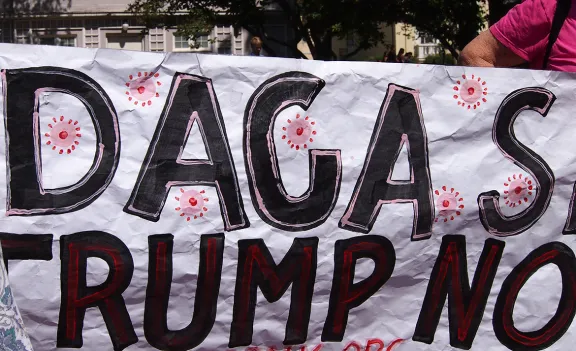
Why Scientists Should Care About The Repeal of DACA
The headlines this summer have been marred by one disturbing theme: an attack on diversity in the United States. With the events of Charlottesville, where counter-protesters to a neo-Nazi demonstration were injured and killed, still fresh on our minds, we face an administration that is slowly trying to chip away at human rights.
In addition to many previous decisions, this summer included President Donald Trump’s ban on transgender people enlisting in the military and his recent announcement to end the Deferred Action for Childhood Arrivals (DACA).
DACA is an Obama-era executive order that allows children of undocumented immigrants to obtain two-year work permits and avoid deportation. People who qualify for DACA are commonly referred to as “DREAMers,” based on a congressional bill similar to DACA called the DREAM act that was introduced in 2001, and has yet to become law.
There are currently 800,000 people benefitting from DACA. Repealing the executive order means that 800,000 DREAMers in the United States will have decreased access to the job market, higher education, and many other basic rights.
It does not take much imagination to understand how this will affect the scientific community. DACA gives students the opportunity to apply for scholarships and work-study opportunities that would otherwise be unavailable to them. Additionally, the continuing two-year work visas allow students of higher education to apply for jobs that reflect their educational training.
Simplifying these processes is crucial to helping people enter scientific fields on both the undergraduate and graduate levels.
These students will enter scientific institutions that thrive on the diversity of graduate students and post-docs. This includes a large portion of immigrants and other people from diverse backgrounds. Making work visas more complicated and difficult to obtain for undocumented immigrants within the United States will decrease the number of people from this population who are attracted to a career in science.
The magazine Science recently profiled a DREAMer and current post-doc at Rush University. Yuriana Aguilar is concerned about not being able to get paid as a post-doc without DACA in place. In a worst case scenario, she hopes to continue focusing on her research as a lab volunteer while maybe having to pick up odd jobs to make ends meet.
With more worrisome stories like this on the horizon, it is important to note that UCSF and many other universities are stepping up to support DREAMers. Statements from UC President Napolitano and UCSF Chancellor Hawgood call to defend DACA and provide resources for UC students that might need it.
As stated by Chancellor Hawgood, UCSF started accepting DREAMers in all professional schools and graduate programs three years ago. These students are an important part of the UCSF community and some of the first DREAMers to enter UCSF’s school of dentistry back in 2015 were highlighted by the UCSF news.
Other schools that are supportive of DACA include the University of Washington (UW) in Seattle. UW claims to have 50 to 75 undocumented graduate students, 15 to 20 of which are in the sciences. As with many other institutions, DACA allowed more undocumented students to enter graduate or professional school at UW because of the students’ new ability to obtain financial support. This includes paid internships and paid research experience.
With the repeal of Obama’s executive order, there is still the opportunity for Congress to pass a bill similar to the DREAM act. This would require a bipartisan effort from Congress, and support from constituents. Be sure to take the time to tell your congressperson how important programs like the DREAM act are to the scientific community. Your experiences and expertise are what helps drive important legislation like this through congress.


